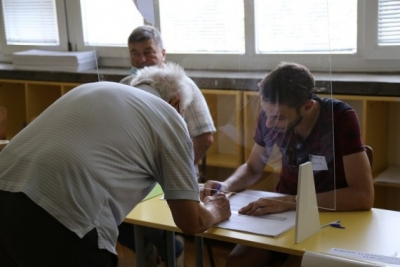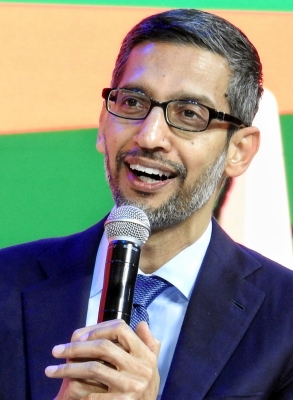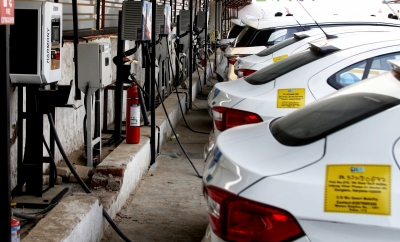
Sofia, April 7 (IANS) The coalition of GERB party and the Union of Democratic Forces (GERB-UDF) won the country’s early parliamentary elections, according to final results announced by the country’s Central Electoral Commission (CEC).
The coalition received 26.49 per cent of the vote and will thus have 69 seats in the 240-member National Assembly, Xinhua news agency reported.
The We Continue the Change – Democratic Bulgaria (PP-DB) coalition came second with 24.56 per cent of the vote and 64 seats, according to the CEC on Thursday.
Four more political groups have managed to cross the four per cent threshold to enter Parliament: Revival party with 14.16 per cent and 37 seats; Movement for Rights and Freedoms (MRF) with 13.75 per cent and 36 seats; BSP (Bulgarian Socialist Party) for Bulgaria coalition with 8.93 per cent and 23 seats; and There Is Such A People (ITN) party with 4.11 per cent and 11 seats.
Voter turnout was 40.69 per cent, according to the CEC.
The newly elected National Assembly is expected to hold its inaugural session within two weeks.
Under Bulgaria’s Constitution, the country’s President will appoint a Prime Minister-designate nominated by the largest parliamentary group to form a government, and a simple majority of legislators present at the session will be needed for approval.
In case of failure, the constitution allows two more attempts to form a government — by the second largest group, and by one of the others.
And should no agreement on the formation of a government be reached, the President will appoint a caretaker government, dissolve the National Assembly and schedule new elections.
This was Bulgaria’s fifth parliamentary election in two years. Three of the previous four parliaments, including those elected on April 4, 2021 and July 11, 2021, as well as October 2, 2022, failed to form a government. A cabinet was formed only after the elections held on November 14, 2021, but it was ousted by a no-confidence vote in June 2022.
The formation of a new government is problematic after these elections held on April 2 as well, according to observers.
Kolyo Kolev, Director of Mediana polling agency and a top political analyst, said in an interview with Xinhua that at first glance, it seemed impossible to form a coalition able to elect a government.
The reason was that the two main parties had built their entire images and campaigns on the total negation of the other party.
“Therefore, it will be very difficult for them to build bridges between themselves and form a working coalition in one form or another,” Kolev added.
Formation of other coalitions seemed almost practically impossible, because they would also require the participation of parties that are mutually unacceptable, he said.
“But on the other hand, it is not possible not to form a government, because this is the fifth consecutive election in two years,” he said. A large part of the electorate was already fed up with this confrontation between all, Kolev added.
–IANS
int/khz/










